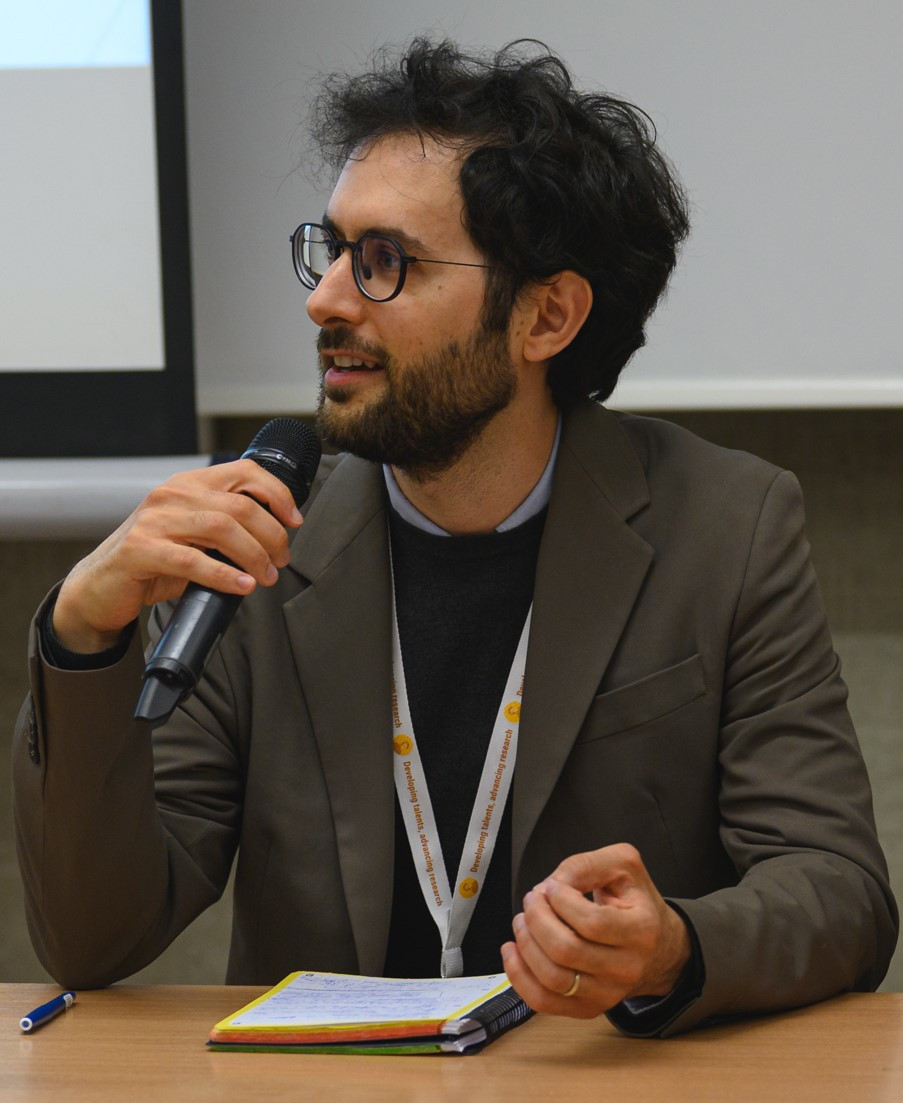Special Issue - Performing excellent research sustainably: about the MSCA green charter
Newsletter
Excellent science can be performed sustainably. The MSCA Green Charter guides researchers to integrate environmental sustainability into their practices, addressing the climate emergency while maintaining research excellence.
Bionote
Robin is currently a Policy Officer at the European Commission, in the Unit dealing with the Marie Skłodowska-Curie Actions (MSCA). Before joining the Commission in 2023, he worked for a network of universities focusing on EU research and higher education policies. He was previously a postdoc coordinating research activities at KU Leuven’s Institute for European law and holds a PhD in European law from the European University Institute (Florence, Italy). Alongside his policy work, his academic interests cover various aspects of EU law and policy, notably in relation to the uses of EU funding programmes.

Whenever I discuss the environmental sustainability of research practices with members of our community, I tend to encounter two contrasting positions.
The first is the “climate emergency” position. Based on numerous reports from bodies like the Intergovernmental Panel on Climate Change or the European Commission, this position holds that fast and ambitious action is needed to cut carbon emissions, address biodiversity loss and eliminate pollution. Accordingly, the research and innovation sector should join other sectors in the green transition, not only by offering scientific and technological solutions to the climate crisis but also by adopting more sustainable research practices.
The second is the “science first” position. It stresses that Research & Innovation (R&I) programmes funded by the European Union, such as the MSCA, should focus primarily on fostering excellent science and achieving impact. The sustainability of research practices should remain a secondary objective; it should not compromise the primary aim.
While there appears to be tension between these positions, three observations can help us reconcile them.

A tension between scientific and sustainability objectives?
First, this tension is not unique to the R&I sector. At the EU, national, or local level, various objectives are set for public action – powering homes and industries, securing food supply in quantity as well as quality, or indeed stimulating research and innovation. However, these goals must be balanced with each other, as well as with other principles considered to be important by the public and its representative institutions. Striking the right balance between environmental considerations and other key objectives has been central to the European Green Deal from its inception, which addresses all sectors of our European economies and societies.
In the same vein, the European Parliament and Council of the European Union, co- legislators at EU level, have recently approved a reform of the rules applying to all EU funding programmes. The reform notably aims to ensure that European spending does not cause (significant) environmental harm – while paying attention to the specificities of each spending programme and ensuring their objectives are still achieved.
Second, and turning to the R&I sector in particular, many of the changes needed for greater sustainability in everyday research and project management concern activities that must happen anyway. Decisions on waste management, how to use energy, what to buy and how to travel: these are practical questions that researchers and institutions must grapple with routinely. While different choices may have different practical implications, incorporating sustainability concerns into these decisions does not create an entirely new set of activities which would be unrelated to the pure act of scientific pursuit – in a similar way that hiring is a routine task for a team or institution, but which should also be performed in light of gender balance principles.
What matters is ensuring that researchers and institutions incorporate sustainability principles when planning and managing research activities. Since 2021, the MSCA Green Charter has supported this shift in practices and mindsets by setting out clear principles for individuals, institutions, and consortia and helping them identify where action would be needed to increase the environmental sustainability of their projects. While the principles of the Charter are not mandatory, the MSCA programme encourages our community to act by requiring reflection on the sustainability of projects at the proposal stage as well as at the final reporting stage. In situations of ex-aequo proposals, where selection panels evaluate proposals as equally excellent and impactful but there isn’t enough budget to fund them, other criteria are used to decide between them – environmental sustainability can now serve as a deciding selection criterion.
Third, and most importantly, the discussion on environmental sustainability in research is not imposed on our sector, but stems from it. Surveys, public stances from different parts of the sector (for instance, from the European University Association or from Science Europe), and as well as direct exchanges with our community – including the very active MCAA and its Sustainability General Interest Group – show that many people in our sector want to take action to make research projects more sustainable. Many already do, as demonstrated in this timely and important special issue.
Robin Gadbled
Policy Officer
MSCA Unit, European Commission
robin.gadbled@ec.europa.eu
References
European Commission. (2018). A European long-term strategic vision for a prosperous, modern, competitive and climate neutral economy. https://climate.ec.europa.eu/document/ download/dc751b7f-6bff-47eb-9535-32181f35607a_en?filename=com_2018_733_ analysis_in_support_en.pdf
European Commission. (2024). Marie Sklodowska-Curie Actions: Supporting excellence in research and innovation. https://marie-sklodowska-curie-actions.ec.europa.eu/
European Commission. The European green deal. https://commission.europa.eu/strategy-and-policy/priorities-2019-2024/european-green-deal_en
European Commission. MSCA green charter. https://marie-sklodowska-curie-actions.ec.europa.eu/about-msca/msca-green-charter
European Parliament. (2019). Proposal for a Regulation of the European Parliament and of the Council on the financial rules applicable to the general budget of the Union (recast).
https://www.europarl.europa.eu/legislative-train/theme-budgets-budg/file-revision-of-the-financial-regulation
European Union, Directorate-General for Education, Youth, Sport and Culture. (2023). Marie Skłodowska-Curie actions Green Charter survey – Greening practices in MSCA projects.
https://op.europa.eu/en/publication-detail/-/publication/a7be7298-9efb-11ee-b164-01aa75ed71a1/language-en
European University Association. Green transition.
https://eua.eu/issues/14:green-transition.html
Intergovernmental Panel on Climate Change, https://www.ipcc.ch/reports/
Science Europe. (2024). Greening research webinar series.
https://www.scienceeurope.org/events/greening-research-webinar-series/